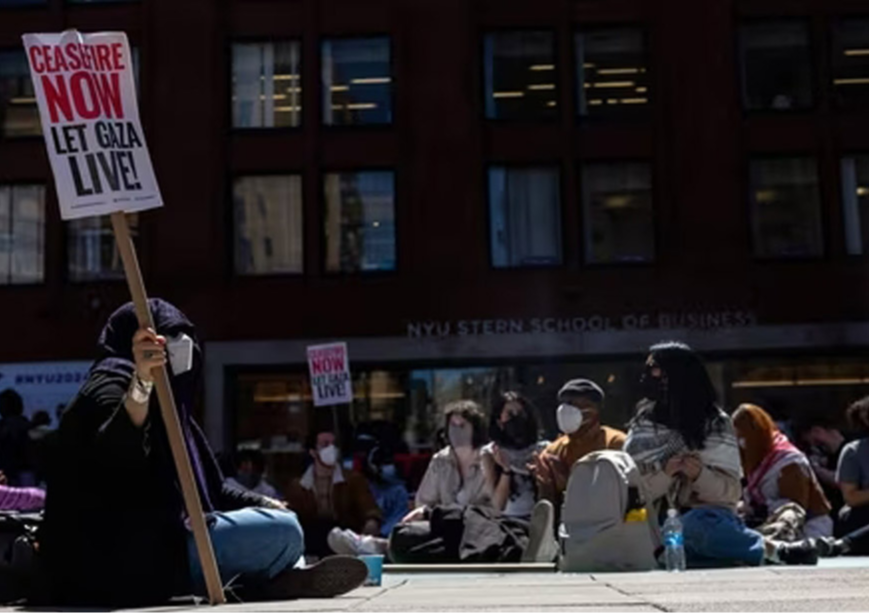-
CENTRES
Progammes & Centres
Location
Counter-terror narratives are backsliding, and this trend needs to be arrested as a compromise with a section of these groups becomes an acceptable way out.

The world was on the edge of its seat as both Israel and Iran came close to war in the past few days. Iran responded with an aerial attack to avenge Israel’s strike on a facility in Damascus, Syria, which killed one of its senior military officials. After a seemingly controlled Israeli retaliation against Iranian military facilities, Tehran did not escalate further.
These tensions in West Asia, as the war in Gaza between Israel and Hamas continues, are taking place amidst multiple fissures in the global order. The United States (US), despite playing a critical role in the region, is both, unkeen to being part of another long-drawn military competition, while simultaneously attempting to maintain its hegemonic power structure when the likes of China and Russia are playing spoiler. In the middle, the likes of Hamas, are doubling down on their political power and clout beyond just tactical assaults.
The Qatari prime minister Sheikh Mohammed bin Abdulrahman Al Thani is revaluating his mediation role after increasing criticism against the Gulf State.
Qatar has hosted the political representation of Hamas since 2012, an office opened with the blessings of both the US and even Israel. Tel Aviv reportedly continued a level of cash flow to Gaza under Hamas control, despite concerns being raised. However, the Qatari leadership is now having second thoughts about continuing to host Hamas at a time when negotiations with the group spearheaded by Doha and Egypt seem to be at an impasse. The Qatari prime minister Sheikh Mohammed bin Abdulrahman Al Thani is revaluating his mediation role after increasing criticism against the Gulf State. Simultaneously, the chairman of the political bureau of Hamas in Doha, Ismail Haniyeh, recently visited Turkey as rumours started to make rounds that the group was potentially looking for a new office space.
Hamas, proscribed as a terror organisation by the US since 1997, has managed to empower its political office by many folds since the October 7terror strike against Israel. Utilising the fact that the group’s military wing in Gaza still holds dozens of Israeli hostages captive, and not just piggybacking, but manipulating pro-Palestine narratives as pro-Hamas ones, these lines have been significantly blurred by a global pushback against Israeli military action in Gaza and the rising number of civilian casualties.
Hamas is not the first one to benefit from the empowerment of political narrative diluting the militant one, and more specifically, being platformed by the realpolitik of Doha. The Taliban in Afghanistan is now in its third year of holding power in Kabul, and the deal which got them to walk in and take control, was signed with the US in Qatar in February 2020. The Taliban’s political office in Doha arguably gained significant political clout while the group enacted its militant activities in Afghanistan unabated, mobilising successfully the old proverbial adage which says, “you have the watches, we have the time”. Hamas seems to be playing the same deck of cards. Political negotiation with a proscribed extremist group is not a new idea.
The Taliban in Afghanistan is now in its third year of holding power in Kabul, and the deal which got them to walk in and take control, was signed with the US in Qatar in February 2020.
Interestingly, the group’s own appeal and politics often drive decision-making on what level they can be engaged with, if at all. Offhanded and reactionary engagement has dire consequences as well and it potentially legitimises both ideology and the polity.
In the post-9/11 and War on Terror (WoT) era, these have consequences. This WoT era, now on its deathbed after wars in Afghanistan and Iraq, allowed many countries to finally define their own terror threats and counter-terror requirements. Multilateralism led by US power came out with new tools to counter these threats and there was a sense of absolutism on disallowing terrorism and accompanying narratives space or attention. These new tools benefited many, including India.
While there is no doubt that despite the mistakes and ills made during the WoT period (such as the Iraq war), there were benefits as well which were more visible for countries that usually did not get space or attention on raising issues of terrorism. India has tried to hold this momentum together within its limited capacities by hosting a session of the United Nations Counter-Terrorism Committee in 2022 and the subsequent release of the Delhi Declaration specifically concentrating on the use of emerging technologies by terror groups.
Global counter-terror narratives are backsliding, and this trend needs to be arrested as a compromise with a section of these groups becomes an acceptable way out. Political empowerment of certain ideologies is myopic deterrence without long-term thinking factored in. A better quality of thinking is required in countering terrorism that goes beyond a level of normalisation for concessionary policies and politics.
This commentary originally appeared in Hindustan Times.
The views expressed above belong to the author(s). ORF research and analyses now available on Telegram! Click here to access our curated content — blogs, longforms and interviews.

Kabir Taneja is a Deputy Director and Fellow, Middle East, with the Strategic Studies programme. His research focuses on India’s relations with the Middle East ...
Read More +